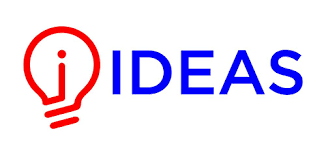Article | Open Access | Published: 10 July 2023
An Investigation of the Mediation and Moderation Effects of Abusive Supervision on Employee Creativity
| Views: | 293 | | | Downloads: | 203 |
Abstract:
The relationship between abusive supervision and employee creativity is examined in this research work, along with the potential moderating and mediating impacts of organizational citizenship behavior and power distance. The importance of employee creativity in organizational sustainability and competitive advantage is highlighted through a thorough research analysis. The study uses information gathered from 73 small and big construction enterprises in Islamabad and Rawalpindi, totaling 1521 people. Using pre-established scales, measures of abusive supervision, organizational citizenship behavior, employee innovation, and power distance were evaluated. According to the data, there is a bad correlation between abusive supervision and organizational citizenship behavior, which suggests that it may prevent staff members from acting in productive extra-role ways. Employee inventiveness was also found to be negatively impacted by abusive monitoring because it reduced workers ?innate motivation and eagerness to provide fresh ideas. Organizational citizenship behavior, on the other hand, was found to have a positive link with employee creativity, implying that workers who participate in good and proactive behaviors are more likely to display greater levels of creativity. In the link between abusive supervision and organizational citizenship behavior, power distance appeared as a key moderator. Abuse by supervisors was seen as more legitimate in cultures with increased power distance, and subordinates were less likely to engage in organizational citizenship behaviors. This highlights the cultural impact on perceptions of harsh supervision and its impact on employee behavior. Overall, this study highlights the importance of promoting positive leadership practices and organizational citizenship behaviors to foster employee creativity. The findings contribute to the growing body of knowledge on the complex dynamics between leadership, employee behavior, and creativity. Additionally, the limitations of the research, such as the use of self-reported data and the specific industry focus, are discussed. Future research directions are suggested to enhance the understanding of employee creativity in diverse cultural and organizational contexts.
Keywords:
Abusive supervision, Employee creativity, Organizational citizenship behavior, Power distance, Leadership behavior, Workplace environment, Employee well-being
Publisher:
ILMA UNIVERSITY
Published:
10 July 2023
E-ISSN:
2409-6520
P-ISSN:
2414-8393
This is an open access article distributed under the terms of the Creative Commons Attribution CC BY 4.0 license, which permits any use, distribution, and reproduction of the work without further permission provided the original author(s) and source are credited.















